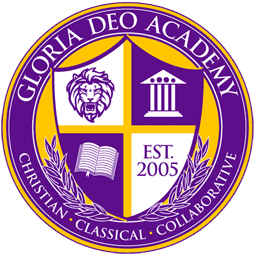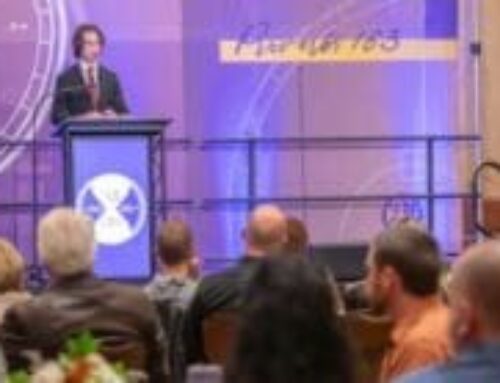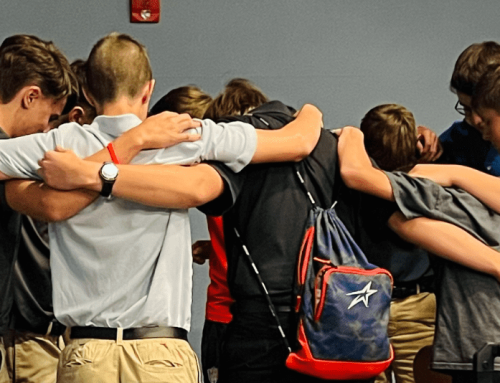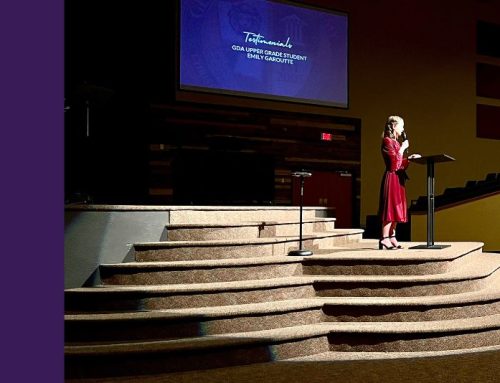What is Classical Education?
For most parents seeking academic rigor for their students, Classical Education is the pinnacle of educational achievement, the apex of a successful foundation for lifelong success. Classical Education has a reputation for setting a strong standard for its students, equipping them to learn through excellent curriculum and instruction, and its superiority is solidified through proven demonstration of the output of well-educated citizens. But what is Classical Education, and why should we pursue it for our children?
Classical Education is far more than cyclical history and Latin studies, although most would define it as such; and that is a part of its format, its exterior dress, if you will, but there is so much more within the soul of Classical Education. Parents quickly grasp that it’s an ancient method of teaching with substantiated results. But how does it work? What is it? Let’s begin with why we should utilize Classical pedagogy, then move on to its method.
Outside of the Christian Worldview, the purpose of Classical Education is to educate the whole man: body, mind, and spirit; to educate beyond mere utility for the betterment of the individual. To teach students how to learn. This same purpose drives the Christian Classical educator as well, but we have a deeper, nobler end in mind. Simply stated, the purpose of Classical Education from a Christian Worldview seeks to “repair the ruin of our first parents,” (Milton). What this means, in essence, is to bridge the gap as well as possible that comes from the Fall; to regain knowledge and intimacy with God. God has revealed much of his character through his General Revelation, which is the observable world around us. We can learn more of who He is, and learn to love Him more by learning all we can through science, math, poetry, language, art, woodworking, history, reasoning, Theology, etc. Since everything was created by God, learning more about those created things reveals the nature of the Creator. Christian Classical Education puts God at the center of every learning endeavor. All subjects point to Him, and He points to all subjects, thereby integrating all areas of learning.
Education is not so much about the subjects we study as it is about the skills we master in order to be self-learners; the subjects are merely the areas in which we practice those skills. Classical education highlights the skills, or “Tools” as Dorothy Sayers identifies them (Sayers), and are divided into three areas of age-development and, concurrently, three areas of skills, or arts, known as the Trivium, which means “three roads” or “three ways”. Those three areas are Grammar (knowledge), Dialectic (logic), and Rhetoric (wisdom). Understanding the progression of skills in each area allows learners to know immediately where to begin studying a new subject, and how to move through the skills in each area toward mastery of that subject. This learning method creates people who can teach themselves anything, who can approach any and every subject with confidence and skill.
As humans, we move developmentally from Grammar to Rhetoric, with natural brain development making each area accessible and pleasurable. In the Grammar stage, we are most inclined to enjoy repetition, observation, naming things, and retelling. This makes memorization easy and fun for this age learner. Think of your youngest children. How often do they ask for the same story to be read over and over again, or watch the same movie over and over again. Repetition is a delight to young learners, and that delight makes memorization of facts easy and pleasurable.
“Because children have abounding vitality, because they are in spirit fierce and free, therefore they want things repeated and unchanged. They always say, “Do it again”; and the grown-up person does it again until he is nearly dead. For grown-up people are not strong enough to exult in monotony. But perhaps God is strong enough to exult in monotony. It is possible that God says every morning, “Do it again” to the sun; and every evening, “Do it again” to the moon. It may not be automatic necessity that makes all daisies alike; it may be that God makes every daisy separately, but has never got tired of making them. It may be that He has the eternal appetite of infancy; for we have sinned and grown old, and our Father is younger than we” (Chesterton 61).
That does not mean that the adult learner will not need to utilize the skills of Grammar. As a skill, everyone must begin learning a new subject by mastering its grammar, the basic foundational knowledge required to build upon. This means that even the adult learner will begin a new subject with grammar. For example, if one desires to learn an instrument, they must first learn how to read music, what and where notes are located on an instrument, and the parts of the instrument.
In the Dialectic stage, middle age learners are most excited about questioning things and wondering about the ‘why’ behind everything. The Dialectic student’s frontal lobe is developing and they are interested in reasoning and arguing. This is why so many middle age youth ‘talk back’ and argue, why they constantly want to know ‘why’ they have to do something. Their natural inclination is to try to be logical, so we must give them the skills so they can reason well. This makes logic, reasoning, debate, writing, and more complex math natural subjects for this age. As a skill, the Dialectic is when learners of all ages move beyond the grammar into understanding how things work together and are able to comprehend more intricate processes. To go back to our example of learning an instrument, the Dialectic skills are when the learner begins to put the notes together to play songs and chords. They can proficiently read music in order to play their instrument.
The Rhetoric stage is the last stage of learners. This developmental stage begins to apply the knowledge of grammar and the understanding of dialectic, to create the wisdom of Rhetoric. This learner is now able to teach others to learn because they have mastered the content, understanding the ‘why’s’ behind knowledge, and are able to communicate the lessons to others. These learners are most adept at integrating disparate ideas, presenting ideas, thinking outside of themselves, participating in discussions, and writing. As a skill, Rhetoric is when the learner is most adept at creative thinking, application of learning to self and situations, and can eloquently express what they have learned. When learning an instrument, this is the area when one begins to create harmonies, to compose, and to teach.
By mastering the skills of the Trivium, anyone can learn anything and thereby begin to “know God aright and out of that knowledge to love him, to imitate him, to be like him, as we may the nearest by possessing our souls of true virtue,” (Milton).
Works Cited
Chesterton, Gilbert Keith. Orthodoxy. Harold Shaw Publishers, 1994.
Milton, John. Tractate of education. Macmillan, 1905.
Sayers, Sayers, Dorothy. “The lost tools of learning.” National Review31.3 (1979): 90-99.





